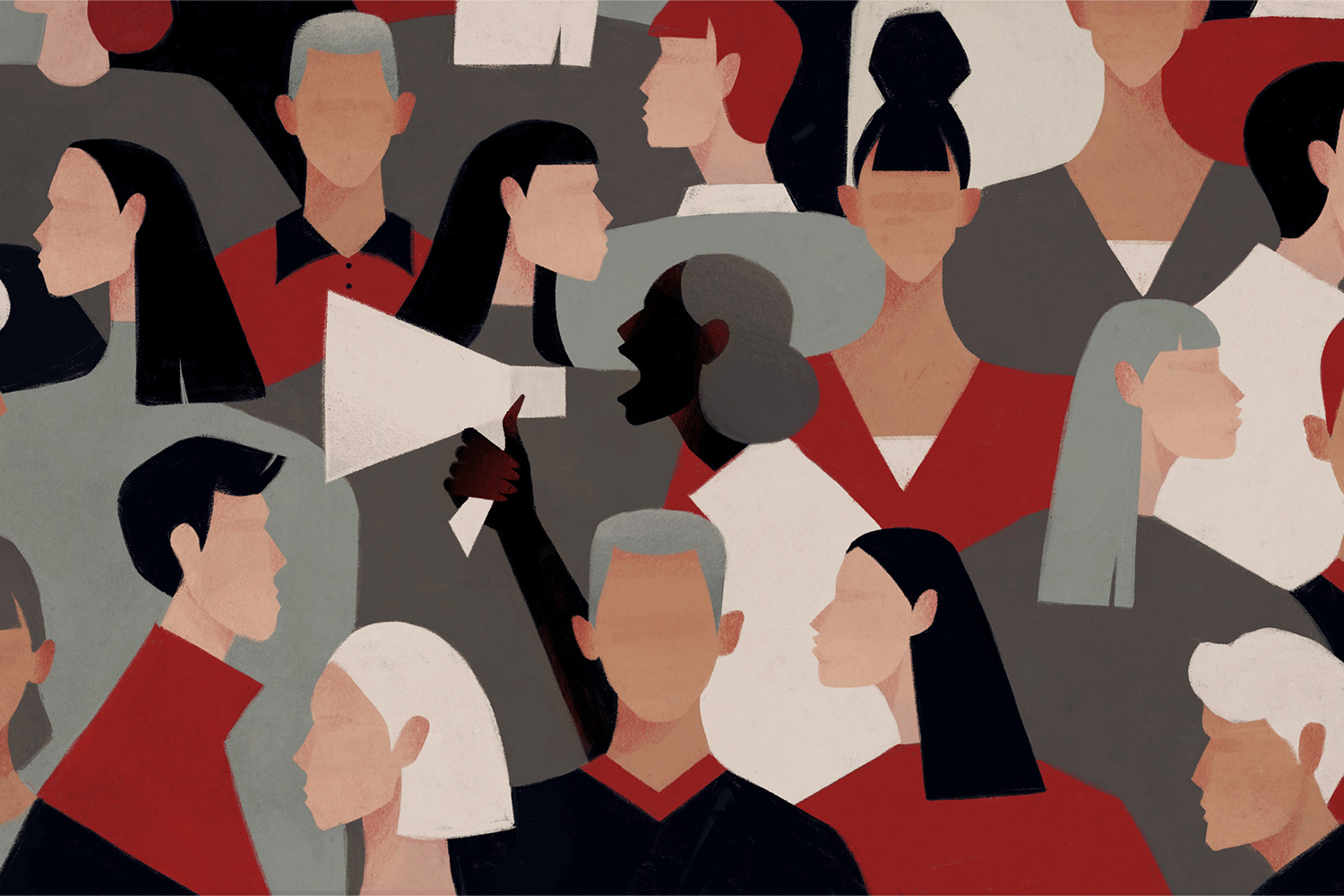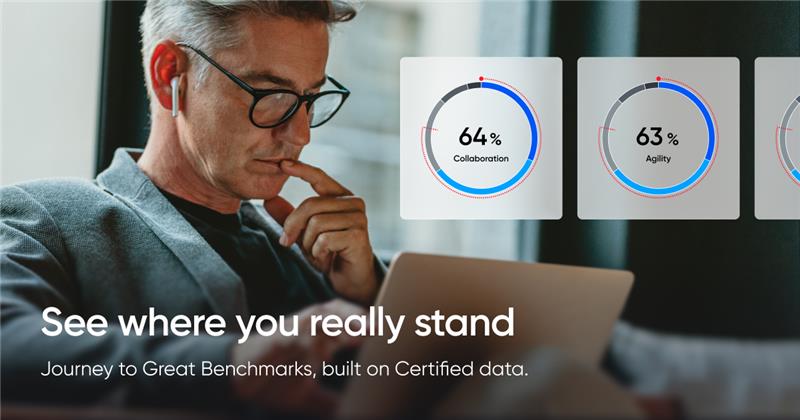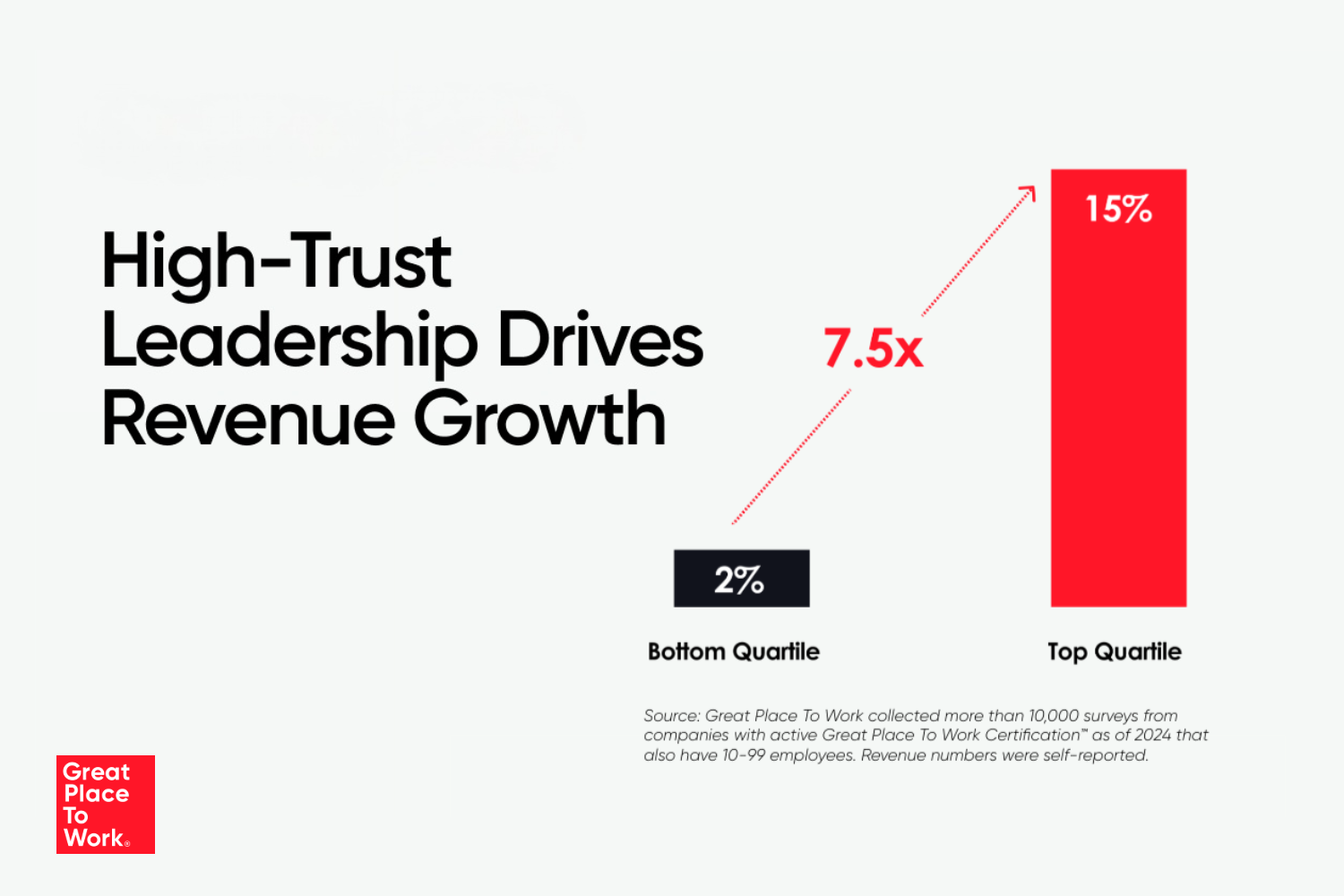There is fear in the land of the free and home of the brave. As a CEO leading in conditions where we’re constantly required to do more and more with less and less, I know that unchecked fear will cloud your judgement — and I’m checking in on my fears daily: Do I have the right people in my business to maintain resilience in the economic downturn?
Will our focus on EBITDA crush innovation and morale of the people doing the work? How do we maintain connection in our fully remote world? How do I continue to support my people through tragedies in their communities and political decisions that have real impact on them and the future of their loved ones?
As I climb over my wall of fears, I wanted to lend you all a hand to help you get to the other side. These suggestions are based on our work with 18,000 companies in 140 countries and more than 15 million survey responses from employees at all levels collected through our platform yearly.
Acknowledge reality
Great leaders know when to pause, read, think, and listen. Listen to your DEIB leaders, your Chief People Officers and CHROs, your Employee Resource Group (ERG) leaders, and your trusted friends and advisors.
We are business leaders. We are judged by financial metrics, and other metrics that are important to our stakeholders.
McKinsey research shows that “Companies in the top quartile for racial and ethnic diversity are 35% more likely to have financial returns above their respective national industry medians.” And, the publicly traded companies that make the Fortune 100 Best Companies to Work For list consistently outperform the stock market by a factor of 3.36. We use our For All methodology methodology to select and rank this list.
This is why I suggest doubling down on your business commitment to diversity, equity, inclusion, and belonging (DEIB) for all.
The word “diversity” is being hijacked and weaponized. For some, at best, diversity means discrimination. At worst, it means darker or “different” people will get the job or promotion because of their skin color or difference. If you can describe what diversity means to you in an unwavering way, go for it.
If the word diversity is uncomfortable for you to use because you know it provides comfort to some and fear within others, I would acknowledge to your people why it makes you uncomfortable. Then state what you believe in, including how different beliefs, experiences, skills, and personalities are needed to drive innovation.
Ask your DEIB leader for help on the message that will move your company forward from a business performance point of view.
Communicate with your people
Let your people know what you’ve heard and you believe. I believe merit is not enough. I hope you believe in having the best people, and you’re aware that’s not possible unless you’re sourcing talent from all parts of the world and nation.
We need people who can transform, grow, and add more value to the organization. We need people who have Angela Duckworth’s “Grit.” We need people who are learning and asking questions so they can alter their point of view. We need people who bring out the best in others.
We need people who believe in themselves and believe in teams. We need people who have things in common with our buyers and customers, and their needs.
Reinforce your values and organization’s purpose because people might wonder if anything has changed. Clarify what you are willing to do to achieve your organization’s purpose.
Let your people know if you’ll continue to capture demographic data, or if you are going to evaluate and make a decision later. Demographic data is as vital to track as every element, shape, and source of material in your supply chain.
Why wouldn’t you want to know everything you can about every “asset” coming into your organization? Since the SCOTUS ruling does not affect employers, I am not sure why you would stop. If laws change, then you will change accordingly. This might help you make the case to continue to collect this (and all data).
Demographic data helps you see if some leaders need development because they are great leaders for some but not great leaders for all. Demographics and their intersections help you see what is working and what isn’t when you compare the experience of someone who has been in the organization six months vs. 16 years. A person who bikes to work v. a person who uses public transportation and a wheelchair.
A person who has elder care or/and parental responsibilities. Or a person who speaks English as a first language v. a person who speaks English as a third language. People who are male/female/trans/nonbinary/gender fluid can have uniquely different experiences based on many things (the state or country they live in for example).
If you’re not sure how demographic data will make you a great leader for all, come talk to me. We have more demographic data than anybody in the world.
Communicate to your Employee Resource Groups (ERGs)
These are people who volunteer their time to make your company great. Many of them are wondering, “Are we next?” Tell them you need them to feel safe. Thank them for giving their time to the company and let them know your company cannot achieve its mission without them.
Then, and most important, ask about their experience and stop talking. Ask them to let you know what the last week has been like. Ask clarifying questions, but don’t respond. Just listen. Have someone take notes so comments keep flowing. At the end, respond when you feel prepared, ask for time to think about their fears and opportunities, and get back to them personally or via video in 30 to 60 days.
By the way, the data tells us members of ERGs have much higher scores in areas of inclusion and belonging, future growth prospects, trust in management decisions, and their intention to stay at their organization for a long time. Encourage more people to start ERGs if they want.
Explore your data
Explore your company’s “applicant to hire” funnel. If you look at demographics, I can tell you what you’ll see. People will get lighter as you move down the funnel. If you are looking at a funnel where the job pays less than $15 an hour, people will likely get darker as you move down the funnel.
Check your fear
What if over the next 60 days, the next 100 job applicants who apply to your company contains zero white people? What if that trend continued for six more months? How do you feel right now? At this moment? That feeling you might be having is telling you something about why race matters.
When somebody tells me my race doesn’t matter, my neck gets hot. I wish it did not matter, but I live in the real world. When a woman gets a job, some say “she got it because she was a woman,” but if a man got the job, he got it based on his merit. It happens so often nobody ever thinks to say, “He got it because he was a man,” yet A.I. will tell you, “He got it because he was a man.” I am starting to love ChatGPT.
At Great Place To Work, we talk about creating a great place to work for all. If you think you can’t create a great business and change the world, take a good look at our team. People ask me how we created one of the fastest-growing profitable SaaS companies in the world over the past five years — and I tell them to look at our people.
I know my comments about the “diversity” word might be painful to some. This is not my intent. I think I know more about the pain of the dilution of this word than anyone.
Why did this happen? Facing issues related to race in this country is very hard, perhaps impossible. Words have been added, deleted, and redefined as a result.
Trust is not earned by what you say or how you say it, trust is earned by what you do and how you do it.
People are not going to trust a company that does not appear to value people who have experiences, situations, challenges, victories, and capabilities like them. People want to see people who look like them. That builds trust and makes them feel great. Everyone should feel this greatness.
This article originally appeared on Fortune.com [Commentary Affirmative Action: Great Place To Work CEO: ‘It’s time to acknowledge why diversity makes us uncomfortable’]











